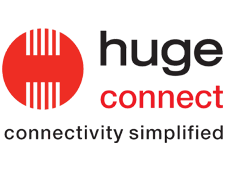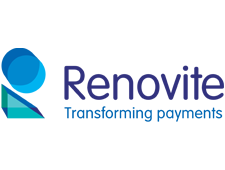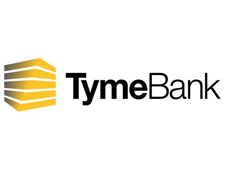ADUMO: Digital Payment Solutions to Accelerate Growth and Change
South Africa’s largest independent payments processor, Adumo is leading the way in the South African transition to digital transactions. Backed by a wealth of expertise across its suite of service providers, and attracting significant investment all the time, CEO Paul Kent outlines how Adumo is unlocking payment potential across the nation.
Processing in excess of R80 billion in transactions every year across more than 50,000 active clients, and with 90,000 active card machines dotted across 13 African countries: this is Adumo. “We are not a bank,” Adumo makes clear, “we are South Africa’s largest independent payments processor trusted by retailers across Africa.
“Whether you are a large multi-national, independent retailer, entrepreneur or informal trader, we have the technology and expertise to help you grow and expand in an ever-changing environment.”
A COMPLETE PACKAGE
More than just payment solutions, the company’s expertise allows it to make smart payment acceptance decisions tailored to each client.
“Our ecosystem offers working capital requirements, consumer engagement platforms, business support solutions, an in-store consumer credit platform, retail point of sales software and hardware, customer analytics, electronic voucher distribution and private label card issuing, all from a single provider,” Adumo says of its all-encompassing offering.
The company brings together a number of powerful brands under its umbrella, each offering serval key elements. Humble, for example, is a proudly South African, cloud-based all-in-one point of sale, payments, e-commerce and loyalty solution, while SwitchPay is an Alternative Payment Platform that merchants can activate consumer credit offerings in-store and online.
Among this vaunted conglomerate of individuals, one that stands out in particular is Sureswipe, an award-winning fintech company featured by Enterprise Africa back in 2019 when Adumo’s CEO Paul Kent was still MD. “Sureswipe reached a point in a such an exciting, high-growth market where it attracted attention from numerous bidders at the same time, one of which was Crossfin,” Kent says of Sureswipe’s evolution.
“Crossfin had some great assets in its business which very much complimented Sureswipe, and made a joint bid with an international private equity firm Apis Partners that had great exposure to capital markets and expertise in our sector round the world.” This exciting combination of partners catalysed the formation of what we now know as Adumo, Kent explains.
“We rebranded in 2020 to Adumo, and are now structuring to have different businesses within the brand that focus on different segments of the market. We take a client-centric approach to the business structure, as opposed to being centred around products and build our payment solutions to fit the client from informal traders to multi-lane, multi-store, enterprise customers.”
Sureswipe deals largely with formal SME retailers needing basic payment solutions, perhaps with loyalty programs, while established company iKhokha is unlocking the high growth small, micro and informal-enterprises. “Most of Sureswipe’s customers are coming away from the banks, seeking better prices, service and solutions, while iKhokha’s business is primarily retailers accepting card payments for the first time,” Kent indicates.
“iKokha’s belief is that every South African entrepreneur should be given the opportunity to compete in the digital economy, and we aim to give them the tools to do just that.”
A CHANGING LANDSCAPE
Onto these founding businesses Adumo has continued to expand and re-structure around this firm client-centric approach, as multitude factors align to accelerate the adoption of digital payments in South Africa. Traditionally a cash-driven society, it has registered a clear and sustained shift toward electronic payments over recent years, with card payments expected to rise by 7.6% to reach R1.4 trillion in 2021 according to GlobalData.
“The combined efforts of the government and financial institutions to boost financial awareness through the launch of financial literacy programs, the provision of basic bank accounts, as well as the expansion of payment card acceptance among retailers supported this growth,” clarified Ravi Sharma, Lead Banking and Payments Analyst at GlobalData. “Though the Covid-19 pandemic has impacted consumer spending, it has also highlighted the importance of non-cash payment methods, pushing the use of card payments in the country.”
The cashless preference for payments has soared in South Africa during the pandemic, with an increasing number of consumers and merchants embracing digital channels for their purchases. To further encourage the shift away from cash, banks in South Africa nearly tripled the limit for contactless card payment without the need of a PIN, from R200 to R500.
Adumo’s offering has evolved to match this trend. “We now have omni-channel solutions for both the SME and medium enterprise segments,” Kent says, “and our one of our acquisitions of this year was of Wirecard South Africa, now Adumo Online, which means we now have e-commerce solutions for the online-only merchants, too.
“We have developed a broad range of payment-led solutions for each different market segment,” Kent summates, citing the acquisition of GAAP, a specialist point-of-sale software company for the hospitality industry.
“This move has allowed us to really deep-dive into a specific vertical of the food and beverage, or hospitality, market,” he continues, “as it gives us the software to run and operate a restaurant through to payment solutions and loyalty platforms, even access to credit. It is further evidence that payment-led solutions, when understood at a vertical or sector level, can support and grow businesses, as we are doing with hospitality.”
INSTITUTIONAL INVESTMENT
Apis Partners and Crossfin are Adumo’s original institutional shareholders. Both with deep expertise and far-reaching relationships, investing in high-growth, capital-light financial services and focussed on solving everyday pain points not addressed by existing products. “Together we look to acquire or partner with innovative companies that solve everyday problems to accelerate growth,” Adumo states.
In March this year, the investment pair was joined by a third, with World Bank Fund member IFC bringing in a massive raise of $15 million. “This will be crucial to our further acquisitions and growth opportunities we see in our market,” Paul Kent recognises.
The investment will increase access to digital payment solutions for small and medium-sized businesses in several countries in Africa, and support Adumo to make their adoption more affordable and accessible. “Through this investment in Adumo, we will be helping small businesses tap into the digital economy, which is more important now than ever before,” said Sérgio Pimenta, IFC’s Vice President for the Middle East and Africa.
Over 50% of South Africa’s workforce is employed by micro, small and medium-sized enterprises, which in turn contribute around 34% of GDP, and access to digital and mobile payment solutions is paramount to increasing footfall and improving customer retention by supporting the transition away from cash-based transactions.
“The pandemic and associated impact on consumers and businesses are transforming the face of the payments industry with interest in cashless payment services at an all-time high,” reinforces Kent. “The funds we have raised from our new equity partners will help us roll out new payment innovations and purpose-based lending services to support consumers and retailers as they navigate an uncertain 2021.”
While slightly disruptive to Adumo’s initial five-year plan, Kent admits, the pandemic has really only really caused Adumo to react, and perhaps expedite the execution of important objectives. “Because of the strong leaders and cultural alignment across the different businesses, we have been able to seize the opportunities which have been presented. Acquisitions, for example, probably came in quicker than expected, and all aligned with the plan we put together at the outset.
“We think we are in a place now where we can reshape and change the payments environment in South Africa for the benefit of all stakeholders,” Kent closes. “We will push regulatory change over time, and keep improving the alignment of our own businesses to best open up the potential they possess.
“We want to be known as experts in payments, but we are building customer-centric solutions that go beyond the one-size-fits-all approach. As the payment world develops we are structuring our business to give solutions which are valuable, easy to operate and less complex.”



